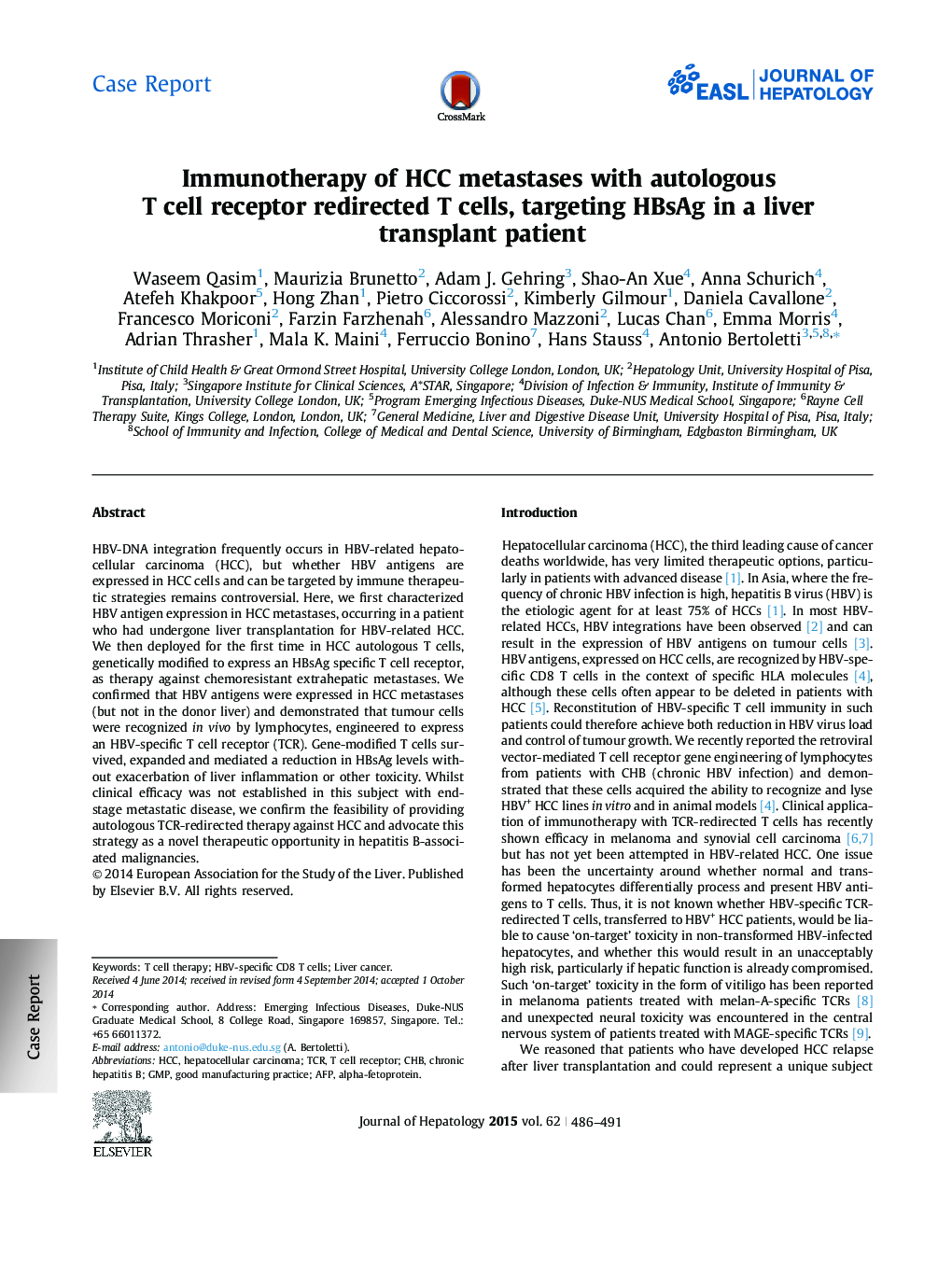| Article ID | Journal | Published Year | Pages | File Type |
|---|---|---|---|---|
| 6102638 | Journal of Hepatology | 2015 | 6 Pages |
HBV-DNA integration frequently occurs in HBV-related hepatocellular carcinoma (HCC), but whether HBV antigens are expressed in HCC cells and can be targeted by immune therapeutic strategies remains controversial. Here, we first characterized HBV antigen expression in HCC metastases, occurring in a patient who had undergone liver transplantation for HBV-related HCC. We then deployed for the first time in HCC autologous T cells, genetically modified to express an HBsAg specific T cell receptor, as therapy against chemoresistant extrahepatic metastases. We confirmed that HBV antigens were expressed in HCC metastases (but not in the donor liver) and demonstrated that tumour cells were recognized in vivo by lymphocytes, engineered to express an HBV-specific T cell receptor (TCR). Gene-modified T cells survived, expanded and mediated a reduction in HBsAg levels without exacerbation of liver inflammation or other toxicity. Whilst clinical efficacy was not established in this subject with end-stage metastatic disease, we confirm the feasibility of providing autologous TCR-redirected therapy against HCC and advocate this strategy as a novel therapeutic opportunity in hepatitis B-associated malignancies.
